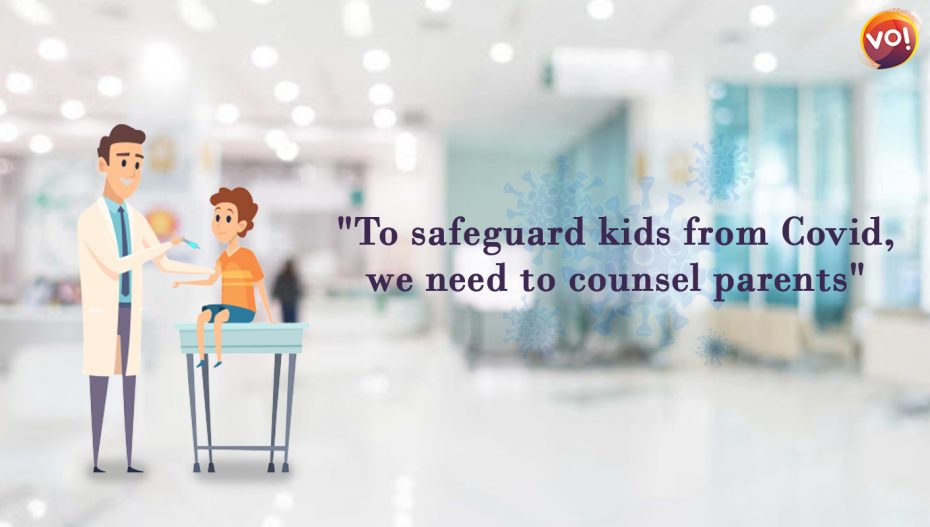With speculation that the third wave of Covid will hit children hard and the upcoming drive for kids’ vaccinations, parents have an array of questions about the efficacy of the vaccine and the protocols to follow to safeguard their kids.
Currently, Zydus Cadila’s anti-Covid vaccine, ZyCov-D, became the first vaccine approved for use on people as young as 12 in the country. It is likely to be available by the first week of October. This is a plasmid DNA vaccine for Covid-19; is a three-dose vaccine that will be administered on Day Zero, Day 28, and Day 56. The vaccine was approved by the Central Drugs Standards Control Organisation (CDSCO) after its experts’ assessed results from the company’s phase III clinical trials that showed the vaccine to have an efficacy of 66.6%. The National Technical Advisory Group on Immunisation (NTAGI) is to discuss the modalities of vaccination for those over the age of 12.
To discuss this issue, Vibes of India spoke to Ahmedabad-based expert paediatricians with over a decade of experience: Dr Preeti Hemani and Dr Sunil Chand.
Excerpts from the conversation:
Sunil: As paediatricians, our job is more about counseling parents than giving medicines. In situations like this, there is a lot of fear and confusion. Everyone wants a 100 per cent guarantee for the vaccine, which is practically not possible. For example, paracetamol is one of the most common drugs, but some people have an adverse reaction to it. Thus, it is tough to define how a particular child would react to the vaccine.
Needle-free vaccine for kids
Preeti: The vaccine for kids is different from the adults. The DNA vaccine is an intradermal vaccine, which is applied using the needle-free system, resulting in a reduction in side effects such as pain at the injection site. Unlike m-RNA vaccines, which need ultra-cold storage systems, the DNA vaccines can be stored at 2-8 degrees Celsius, which is best suited for India. Also, the vaccine can be manufactured with minimum biosafety requirements.

Should parents wait for the best vaccine?
Sunil: These are unusual times and to safeguard your child, take whichever vaccine is available. Any vaccine can help prevent morbidities; it is a preventive measure.
Kids are not superspreaders
Preeti: Unlike the popular belief that children are superspreaders, they are not. The immune system of kids is not as developed as adults, and therefore, adults spread the virus more than kids. However, little ones can be asymptomatic or show mild symptoms of Covid. It is important to get them tested.

Do not miss out on regular shots
Sunil: In India, we take vaccines from birth, including ones for polio, Hepatitis A, measles, mumps, rubella (MMR) and others. Parents should not miss out on these vaccinations in the heat of the pandemic. They re equally important for kids.
Don’t overload kids with vitamins
Preeti: Parents start feeling unnecessary pressure and confusion in dealing with their little ones. As adults, they go on an overdose of amla, lemon and all sorts of multivitamin tablets. They do the same with their kids and it is not advisable. Kids need to be on a balanced diet instead of consuming things that are not medically prescribed.
Covid appropriate protocols
Sunil: Covid appropriate behaviour in parents is a must. They need to mask up, avoid social gatherings and not spend a lot of time on their phones. Kids mimic their parents’ behavior, and it is irresponsible of parents if they don’t lead by example. Parents also need to emphasise workouts and exercise and compel kids to follow them. Obese kids have a high risk of severe Covid and this can be avoided by being fit.
School or no school?
Sunil: Children have missed out on social life during the pandemic and therefore sending them to schools is advisable. But these are exceptional times and unless kids get vaccinated, it is tricky to send them to schools. As doctors, all we can say is if schools are opened, we need to review kids and the after-effects of the decision. This is a trial-and-error process.












